MercoPress. South Atlantic News Agency
Stories for June 25th 2013
-
Tuesday, June 25th 2013 - 17:04 UTC
Colombia renews IMF two-year 5.8bn dollars flexible credit line

The IMF said on Monday it had approved a new two-year 5.84 billion dollars flexible credit line for Colombia, following a request by the government of President Juan Manuel Santos. The new flexible credit line will replace a previous 6bn two-year program, which recently expired.
-
Tuesday, June 25th 2013 - 16:52 UTC
Colombia establishes closer information security links with NATO
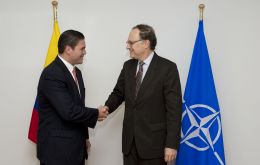
Colombia and the North Atlantic Treaty Organization signed an agreement on information security that will allow exploring future cooperation and consultation in areas of common interest. The agreement was signed on Tuesday in Brussels by NATO Secretary General Ambassador Alexander Vershbow and the Defense Minister of Colombia, Juan Carlos Pinzón Bueno.
-
Tuesday, June 25th 2013 - 16:43 UTC
Ghana Supreme Court rules that seizure of ARA Libertad was “fundamentally and patently wrong”
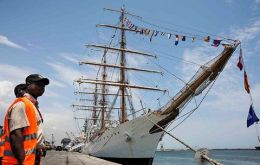
Ghana's Supreme Court has ruled that the seizure of an Argentine warship that led to a weeks-long ordeal last year was “fundamentally and patently wrong,” a copy of the decision released last Friday said.
-
Tuesday, June 25th 2013 - 06:20 UTC
Maduro warns that extended corruption “could devour” the motherland and the revolution

Venezuelan president Nicolas Maduro warned on Monday that corruption will “gobble the motherland” unless there is a tough frontal fight, and underlined that no Socialist or ‘revolutionary’ can be corrupt.
-
Tuesday, June 25th 2013 - 06:14 UTC
Francis sends strong message to the Curia and the Vatican high life
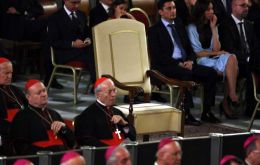
A last-minute no-show by Pope Francis at a concert where he was to have been the guest of honor has sent another clear signal that he is going to do things his way and does not like the Vatican high life.
-
Tuesday, June 25th 2013 - 06:10 UTC
Falklands: memories needed for a thesis on the SS Great Britain, Bristol’s main heritage attraction

PHD student James Muirhead, based in Bristol’s Brunel Institute, is preparing for a trip to the Falkland Islands where he hopes to collect memories of the SS Great Britain which was abandoned there at Sparrow Cove in 1937.
-
Tuesday, June 25th 2013 - 06:05 UTC
Brazilian protests delegates unsatisfied with President Rousseff’ proposals

The leaders of the “Free Fares” movement that triggered the worst wave of street protests in two decades rocking the Brazilian government to its foundations said their meeting with President Dilma Rousseff was ‘unsatisfactory’ because there were “no concrete proposals”.
-
Tuesday, June 25th 2013 - 06:01 UTC
Rousseff proposes referendum on sweeping political reforms in response to protests
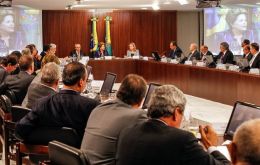
Brazilian President Dilma Rousseff proposed on Monday a popular referendum to implement sweeping political reforms in response to the country's largest public protests in 20 years. Rousseff called for a public vote to eventually amend Brazil's constitution as she tries to seize the momentum in a national debate set off by two weeks of increasingly disruptive demonstrations.
-
Tuesday, June 25th 2013 - 05:57 UTC
Argentine central bank has lost 17% of reserves since the ‘dollar clamp’
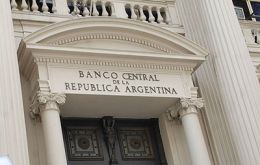
Argentine central bank international reserves dropped 17% since the government of President Cristina Fernandez imposed the ‘dollar clamp`, first limiting operations in the US currency and later savings in greenbacks. While this happened in Argentina in other regional central banks, international reserves kept climbing, according to a report from consultants Economia&Regiones (E&R).
-
Tuesday, June 25th 2013 - 05:56 UTC
Deadly swine virus spreading among hog farms in the US Mid west
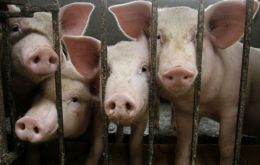
A swine virus deadly to young pigs, one never before seen in North America, is spreading rapidly across the United States and proving harder to control than previously believed.
